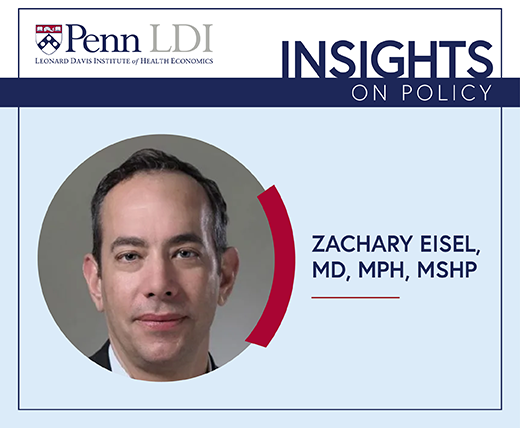
Over 500 U.S. Hospitals Have Stopped Delivering Babies Since 2010
A Crisis in Maternal Care is Unfolding—and it’s Hitting Rural and Urban Communities Alike
In Their Own Words
The following excerpt is from an op-ed that first appeared in the New York Times on April 3, 2023.
Conservative Texans and liberal Californians disagree on much in politics. But legislators in both states agree on a new approach to giving people with cognitive impairments a greater chance for self-determination. It’s called supported decision-making, and it is shaping up to be the most consequential change in the care of older people and others with limitations in mental functioning since the rise of advance care directives in the 1990s.
The difference between guardianship, the traditional way to help those with such impairments, and supported decision-making is analogous to the difference between a dictatorship and self-rule. Unlike guardianship, which creates an all-powerful guardian and strips the subject of the right to make decisions, in supported decision-making, the individual retains final control over key decisions. That person enlists one or more trusted others, such as family members or close friends, to aid him in making decisions. The supporters are there only to assist.
The National Council on Disability rightfully describes this approach as “the most promising and comprehensive alternative to guardianship.” More support for these life-affirming arrangements is needed.
Britney Spears’s public efforts to end the nearly 14-year guardianship she was under cast a light on problems with the arrangement that too often remain in the shadows. In seeking to end her guardianship, Ms. Spears testified in court: “I truly believe this conservatorship is abusive. I don’t feel like I can live a full life.” A judge in Los Angeles concluded in 2021 that the guardianship was no longer needed and terminated it.
Read the entire op-ed here.




A Crisis in Maternal Care is Unfolding—and it’s Hitting Rural and Urban Communities Alike

Research Memo: Delivered to House Speaker Mike Johnson and Majority Leader John Thune

Research Memo: Delivered to House Speaker Mike Johnson and Majority Leader John Thune

Historic Coverage Loss Could Cause Over 51,000 People to Lose Their Lives Each Year, New Analysis Finds
Research Brief: New Incentive Structures and Metrics May Improve Program Performance

Research Memo: Response to Request for Technical Assistance